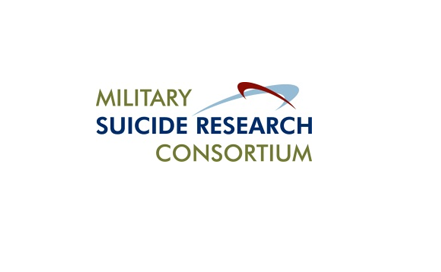Waging the War Against Suicide
As part of the Department of Defense's comprehensive suicide prevention strategy, the Military Suicide Research Consortium was created as an evidence-based comprehensive military approach to suicide prevention. The consortium is in its second year of a projected 3-year, with 2-year option, $17M grant awarded by the Defense Health Program.
MSRC was stood up to "specifically address the high suicide rates within the Army and the Marine Corps," explained Col. Carl Castro, director of the Joint Program Committee for the Military and Operational Medicine Research Program and the U.S. Army Medical Research and Materiel Command.
The consortium is the first and "only effort of its kind, and the largest effort ever to focus on suicide interventions," said Castro, who provides oversight of the MSRC.
This multidisciplinary approach to research, integrating both DoD and civilian efforts, will assist in the development of more effective prevention interventions, risk assessment methods and treatments to decrease suicide. Suicide rates amongst military personnel pose a significant problem, and it is the job of consortium members to address this problem in the most efficient and coordinated fashion possible.
It is easy to see why oversight of the MSRC lies in the hands of Castro and the MOMRP. The MOMRP itself is a unique biomedical research program with a problem-solving orientation and a human physiology research focus. Research within MOMRP focuses on multi stressor interactions involving human tolerances, metabolic physiology, and brain functioning.
Co-leaders of MSRC are Dr. Peter M. Gutierrez, a leading suicide expert and clinical/research psychologist with the Veterans Integrated Service 19 Mental Illness Research, Education and Clinical Center at the Denver VA Medical Center, and Dr. Thomas Joiner, an internationally known suicide researcher and professor from Florida State University.
Since the consortium's creation in September of 2010, "we have been extraordinarily productive, successfully funding 7 studies and meeting every one of our deliverables as laid out in the original statement of work," said Gutierrez.
The seven studies currently being funded by the MSRC include: A behavioral sleep intervention randomized controlled trial at Stanford University; a Window to Hope project evaluating psychological treatment for hopelessness among Veterans with Traumatic Brain Injury at the Denver VA Medical Center; a brief intervention study of short-term suicide risk reduction in military populations at the University of Utah, National Center for Veterans Studies; a Virtual Hope Box study for reducing suicidal ideation at the National Center for Telehealth and Technology; a project targeting suicide bereavement in military and their families at the University of Kentucky; a Military Continuity Project using text messaging as an intervention method for preventing suicidal ideation and behavior at the University of Washington; and a brief suicide prevention intervention with the aim of reducing anxiety sensitivity at Florida State University.
The MSRC is compromised of three units and/or cores, each of which is responsible for one specific area of operation. Operational areas revolve around Executive Management, Information Management, Scientific Communication, and Research Monitoring, and Database/Statistical Management.
"One of the new initiatives the MSRC is working on is a research institute for students," said Dr. Diana Fitek, suicide research portfolio manager, MOMRP. "This is important because it provides students with the opportunity to learn from the experts and develop their own research skills, thereby ensuring that there will be a new generation of scientists to carry out this critical work."
 An official website of the United States government
An official website of the United States government
 ) or https:// means you've safely connected to the .mil website. Share sensitive information only on official, secure websites.
) or https:// means you've safely connected to the .mil website. Share sensitive information only on official, secure websites.



